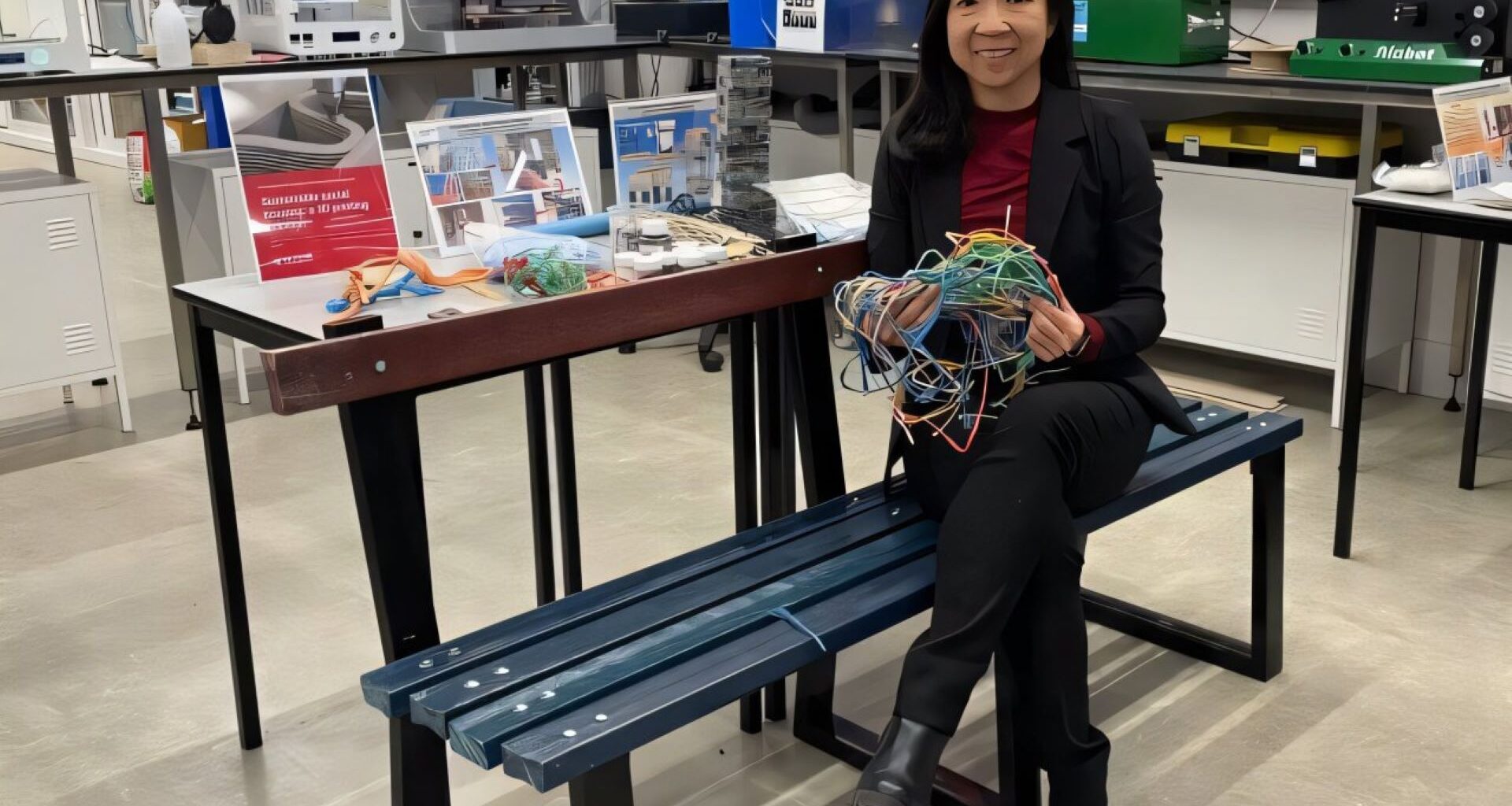
Photo Credit: La Trobe University
A team of researchers has invented a low-cost melting machine that would allow farmers to recycle their own agricultural plastics on the farm.
In a study published in the Recycling journal, the team detailed how the recycled plastic was turned into a bench to prove its viability as a recycled material.
A joint effort of researchers from La Trobe University in Australia and private company Ritchie Technology, the new recycling machine seeks to solve the problem of what to do with the millions of miles of plastic bale twine the agricultural industry discards every year, as noted in a summary posted on Tech Xplore.
Primarily used to bind together hay, straw, and other agricultural products into bales, used bale twine typically is either thrown away, creating plastic waste, or burned, which releases toxic chemicals into the environment, per Tech Xplore.
The new tech aims to change all that by allowing farmers to recycle bale twine themselves on their own farms, potentially even selling the recycled blocks back to industry to be incorporated into new products.
“We successfully demonstrated that bale twine can be efficiently melted and reformed into useful durable products such as garden planters, outdoor furniture and construction materials like decking or fence posts,” said Ing Kong, the study’s lead researcher, in the summary.
The on-site recycling machine is a potentially revolutionary advance not only for addressing used bale twine but for combatting plastic waste more broadly.
According to the United Nations Environment Programme, humans currently generate more than 400 million tons of plastic waste every single year, a staggering amount of which ends up in the natural environment, where it breaks down into microplastics, contaminating the water we drink, the food we eat, and even the air we breathe.
While the full impacts of microplastics on human health are not yet fully understood, what we do know is troubling. Microplastics have been observed to move throughout the body, ending up in vital organs, including the heart.
To stop microplastics from further contaminating the environment and our bodies, we must significantly reduce the amount of new plastic that is being produced while also developing efficient, effective ways to responsibly dispose of the plastic that already exists.
TCD Picks » Upway Spotlight
💡Upway makes it easy to find discounts of up to 60% on premium e-bike brands
On-site, small-scale recycling is an exciting potential alternative to massive, centralized facilities.
“This new technology offers a cost-effective economic and environmental solution to tackle mounting piles of agricultural plastic waste,” said William Ritchie, CEO of Ritchie Technology, calling the melting machine a “triple win,” per the Tech Xplore summary.
“It will give farmers the tools to reduce their ecological footprint, cut their waste disposal costs, while offering the added benefit of potentially selling recycled plastic material back to manufacturers,” he added.
To reduce your plastic consumption, you can purchase fewer products that use plastic, particularly products with single-use plastic packaging.
And as for the plastic you do have, you can find creative ways to reuse, repurpose, and responsibly recycle the plastic to prevent it from ending up in a landfill or the environment.
Join our free newsletter for weekly updates on the latest innovations improving our lives and shaping our future, and don’t miss this cool list of easy ways to help yourself while helping the planet.
